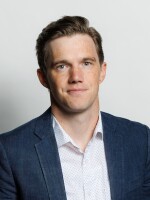Every year thousands of low-income students in North Carolina who achieve “superior” scores on end-of-grade tests are excluded from advanced programs, according to a recent report. The News & Observer and The Charlotte Observer reported that high-achieving, low-income students are left out of advanced classes at a higher rate than their wealthier classmates with the same test scores.
Joe Neff, investigative reporter for The News & Observer and co-writer of the report “Counted Out,” said part of the findings examined how many third graders are selected for advanced classes after scoring above grade level on their end-of-grade math scores.
Neff said one in three high-achieving, low-income students was selected for advanced classes, while one in two more affluent students was labeled as gifted with the same test scores.
“It’s clear you have a step up if you’re not poor in getting into these classes, which are key for getting on the college track,” Neff said when he talked Tuesday on The State of Things.
Christian Bell, a 13-year-old student at East Millbrook Middle School in Raleigh, is one of the many students who scored high marks on his end-of-grade tests and was not labeled as gifted. Bell scored above grade level on his math and reading tests in third grade, but was excluded from advanced classes. Bell’s mother, Salene Miller, said she had to learn how to be an advocate for her son and encourage his teachers to realize Bell’s potential despite his behavioral problems.
“As his mother, I knew his potential,” Miller said. “I knew that Christian could do the work, and he could handle being challenged. I believe that part of his behavioral issues came from not being challenged. They came from being bored. School was boring to him. It was very important for his future to keep him challenged. “
Miller’s story is a testament to the fact that sometimes students rely on the recommendation of either a diligent parent or an encouraging teacher to be put in advanced classes. However, James Ford, program director for the Public School Forum of North Carolina, said it can still be challenging to be placed in advanced classes when implicit bias is present in a school system.
Ford analyzes how implicit bias affects education opportunities for low-income and minority students.Ford said many academic markers, whether it be an end-of-grade test or another standardized test, are often subjective.
“Any norm test is naturally going to be culturally and linguistically biased,” Ford said. “You’re norming it according to a particular population, and often we’re not thinking about who is a part of that norming process.”
Despite the disparities present in the report “Counted Out,” SnehaShah-Coltrane, Director of Advanced Learning and Gifted Education with the North Carolina Department of Public Instruction, said the state has been working to provide equitable education opportunities.
“For the last decade, we’ve been working with all school districts in North Carolina to find ways of effective programming and improving identification practices to explicitly and intentionally address these issues through policies, practices and programs across the state,” Shah-Coltrane said.
However, Janet Johnson, CEO of Edstar Analytics, said equitable education is hard to achieve if schools are not properly looking at the data. For decades, Johnson has helped school districts interpret education data and place more gifted students in advanced classes.
“The folks in the schools don’t have easy access to easy-to-use data,” Johnson said. “The schools don’t have a way to run a report to see the kids we’re missing. They’re not necessarily doing this on purpose. They just don’t have good access to easy data to easily identify these kids.”
Johnson said school officials need to be more open to using data to see disparities present in their policies.
“It’s such a culture change. That’s why we can’t fix it tomorrow,” she said. “We can do it with the data, but it’s disruptive. It changes the culture so much.”








